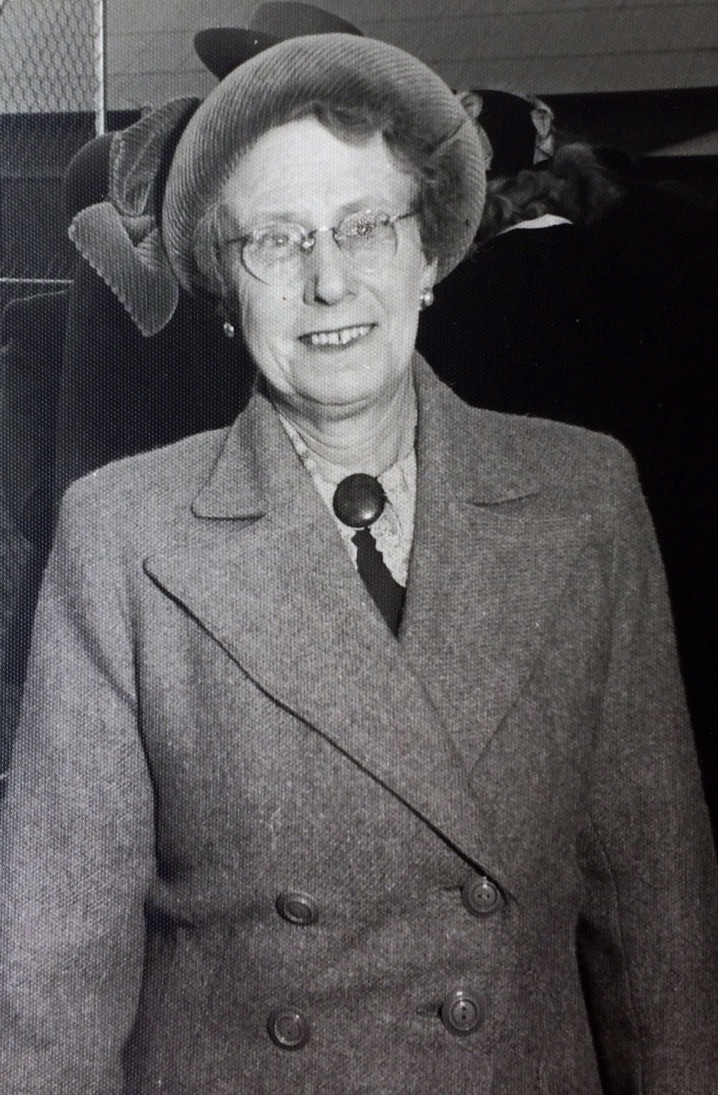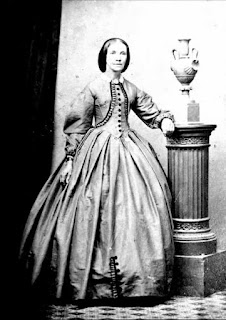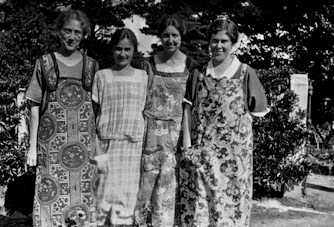19/52 Food and Drink; Annie Eliza Prince 1884 - 1967
19/52 Food and Drink: Annie Eliza Prince, 1884 -1967
I run in the back door and head for the bottom shelf of the cupboard to find a silver plated engraved biscuit barrel. It is round with a hinged lid and a handle. Inside are short bread biscuits.
Christmas dinners at grandma’s, a long table. Roast - probably beef, Yorkshire pudding. And then Christmas pudding and mince pies, dusted with icing sugar. There are threepences and sixpences in the pudding of course but one year I don’t get one and my bowl is whisked away and returned, sixpence in place!
Grandma, Annie Eliza Prince, was born in 1884 in Liverpool. Her baptism certificate says she was living at Crown Street and that her father was an ‘osler’, yet another occupation for James Prince who has been listed as a ‘fire work maker’ butcher, coachman, ‘gun powder maker’ and horse keeper. Perhaps an Osler is the same as a coachman or horse keeper. Crown Street was the location of the first intercity railway station between Liverpool and Manchester. By 1884 it was a goods train station, not a passenger station. Crown street sounds industrial. Annie Eliza was baptised at St Peters as was her sister, Edith. The next two sisters, Jane and Louisa don’t seem to have baptism certificates. They had moved to Toxteth by 1885 when Edith was born.
The census in 1891 shows the young family living at 9 Gaskell Street. Annie was six. Her older half sister, Margaret, her mother’s daughter from her marriage to George Johnson, was 10. Gaskell Street in Toxteth has vanished now but on an 1890 map of Toxteth, it runs one block south of the tramway. They were horse-drawn trams but electrified during the time they lived there. Could they hear the clip clop of the horses pulling the trams in the next street?
A typical Liverpool back-to-back house, which 9 Gaskell Street appears to have been, measured 10 - 12 square feet. It had a cellar, ground floor kitchen with bedrooms above. A Select Committee on the Health of Towns reported in 1840 that Liverpool’s Court Housing was unsanitary and unventilated and from 1861 the building of ‘back-to-back’ houses were banned. Perhaps things had improved by the 1890s, but from the look of the 1890 map, it looks like houses were crammed into streets, cheek by jowl. Nevertheless, all the Prince children survived their childhood.
James Prince though died in the summer of 1899 in his thirties. Annie was fourteen, the age when she is supposed to have run away from home. I think she probably left the year before when she was 13. Either way, as told in other blogs, she went door to door, offering to shine your step for a penny. Having a shiny step was a point of pride for a middle class Liverpudlian housewife. When she knocked on Florence’s door, she was asked to explain herself:
‘ What’s a girl like you shining steps for a penny? ‘ she was asked. She showed her bruises, the result of being hit by her parents. Was it James who hit her? Was it Ann? Florence marched around to Gaskell street and told them off. Did she find a squalid slum? Drunken mother or father, grubby faced younger children cowering behind their mother or father?
Was Florence an activist with the Women’s Christian Temperance Union? I am certain she was a Methodist as both Annie and Janey were ‘born again’ in the faith, following Florence’s interventions. Liverpool’s problems with alcohol was a hot topic, with efforts being made to limit its availability - at one stage there was a pub for every 13 citizens. Temperance activists sought to limit sale of alcohol to children, to clamp down on ‘child-messages’ - children like the Princes who were sent to the Pub to fetch beer. Given Annie and her sister Janie’s attitude to drinking alcohol - ‘wicked’, it makes sense that Florence, their ‘saviour’, taught them this in their teenage years.
Florence rescued Annie and found her a job as a domestic. In the 1901 census we find Annie working at 91 Breeze Hill Street, Walton on the Hill. The boss was Alfred Muster, a teacher, living with his wife and sister and their 2 year old son. Annie was the only servant. It would have been a very different life. Annie’s sisters also were in domestic service, as their mother had been at their age.
By 1909 Annie was working as a domestic servant in Manchester, only a forty minute train ride away from Liverpool. Was it a big house? I have Downton Abbey in mind. There, she got engaged to the chauffeur, Frank Jackson, just like the one in Downton Abbey. They married on the 10th day of June at the Crumpsall Park Wesleyan Chapel. Frank’s father, retired grocer, Francis, came from Sheffield to be a witness. Probably Frank’s mother came too and some of his sisters. Annie didn’t have any family to witness her marriage: Annie Dowling was the witness. Who was she? Another domestic servant? A member of the church?
Frank Jackson came from a respectable Yorkshire family of grocers. Like all his sisters, he worked in the shop as a grocer in his teenage years. but at some stage after he was 14 he disappeared from the family home. He was the only son. The family legend is that he became a jockey and that he raced in Paris, but I have not been able to confirm that story with documentary evidence. It makes sense though that a jockey would mature into someone who cares for the horses in a rich estate and that he would have then become a chauffeur as automobiles replaced horses. They were respectable working class, engaged in left wing politics. It is said that Frank used to embarrass Grandma by singing the Internationale in public. HIs sister, Emily, married a bricky’s labourer, the first Sheffield Labor Party candidate.
In the 1911 census they were living at 21 Newland Street, Crumpsall, a northern suburb of Manchester. It was a two story terrace, on the corner. Their baby, Grace Barbara, was one year old. The air quality in Manchester was notorious and Grace suffered from asthma. The doctor recommended a sunnier climate and Frank, Annie, Gracie and Annie’s sister Jane, decided to migrate to South Australia. As described in Jane’s blog, they boarded the HMAS Osterley in London in August 1914, arriving in Adelaide in October.
Annie and Frank had two more children, Florence and Ted. They lived in 10 Ashbourne Avenue, Mitcham. Frank continued to work with cars, as a chauffeur. According to my cousin he had a temper and sometimes threatened violence, although he never hit Annie or the children. My cousin recounts a story where Grandma came home to find him chasing Fommy and Ted around the house brandishing an axe. Grandma soon put a stop to that.
Grandma carried a lot of childhood baggage, as one would say today. She was embarrassed about her accent and apparently took elocution classes to speak more like a ‘lady’. I loved her accent and I’m glad she retained it. She said ‘glass’ to rhyme with ‘lass’ Dad used to say she was snobbish. I imagine she had experienced a lot of abuse and put downs relating to her background in the slums of Liverpool and she had married up and wanted to be treated with respect. The only way to get that was to assume a respectable front. Perhaps she and Frank, with his socialist bent, argued about that. She suffered quite a lot of anguish and even considered suicide at some points in her life. She and Frank, at the suggestion of the children, perhaps as adults, separated. Grandma stayed in Mitcham and Frank had various addresses until he settled in Port Elliot. My cousin says Annie never stopped loving Frank and had some regrets about their separation. Annie took up hairdressing to support herself after they separated.
My earliest memories of shortbread and mince pies are from Mitcham. The back of the house was the kitchen where we ate meals. Inside was a dark lounge room and beyond that the bedrooms I suppose but I don’t remember going into them. There was a big garden with fruit trees and perhaps a glass house. We always ran in the back door.
In the 1960s grandma became frail and went to live with her daughter Florence and her family in Sydney. She died there in 1967. It was the first time I had known anyone who died and I was very sad. I remember crying in the garden beside the golden elm. Now I always make mince pies at Christmas time, making my own fruit mince in the hand mincer. Grandma gave me her Lancashire food heritage and I like to celebrate it.




Comments
Post a Comment